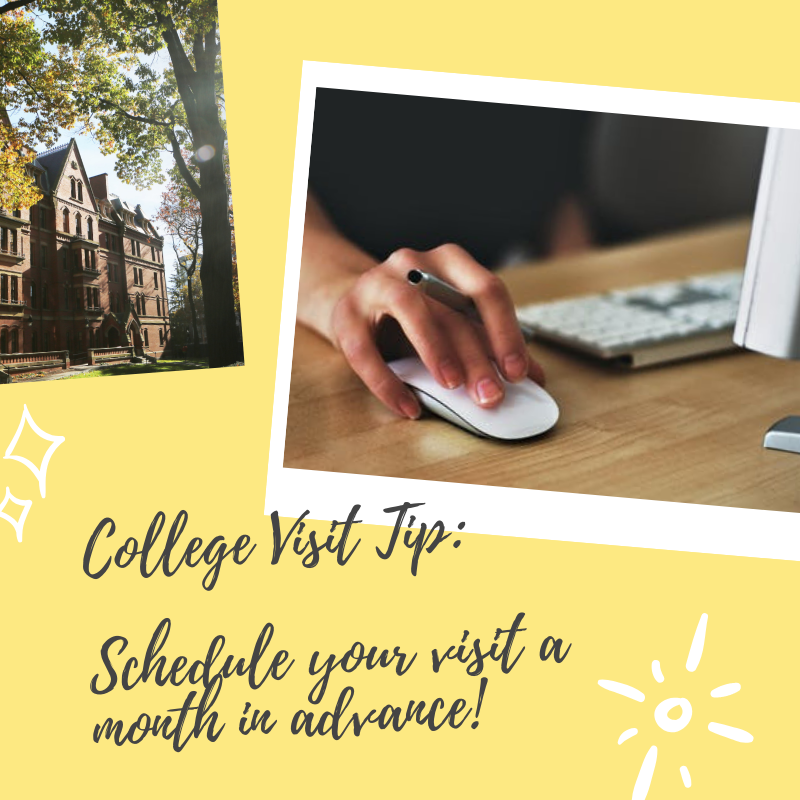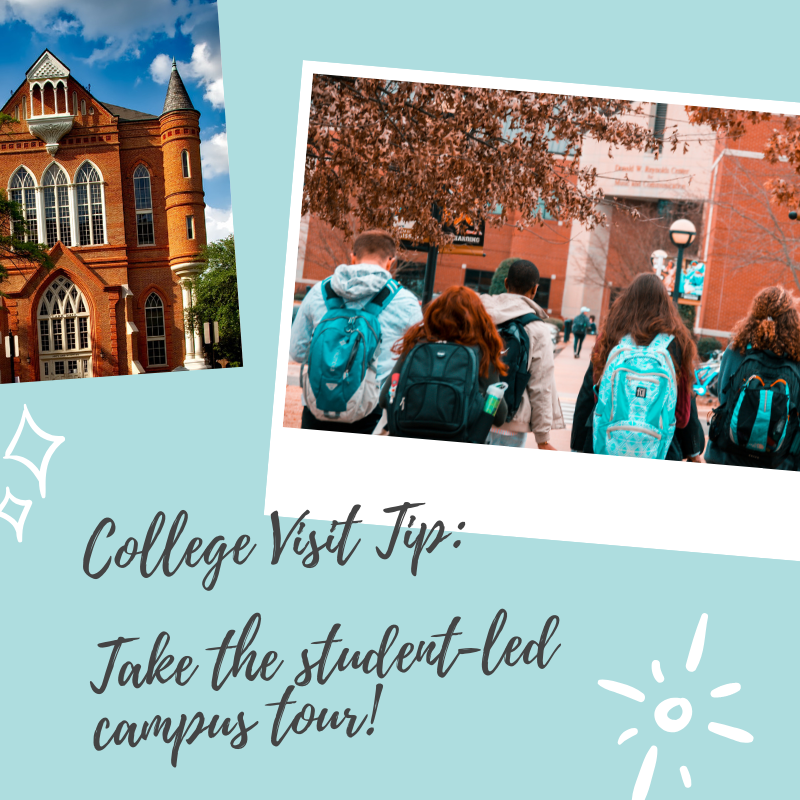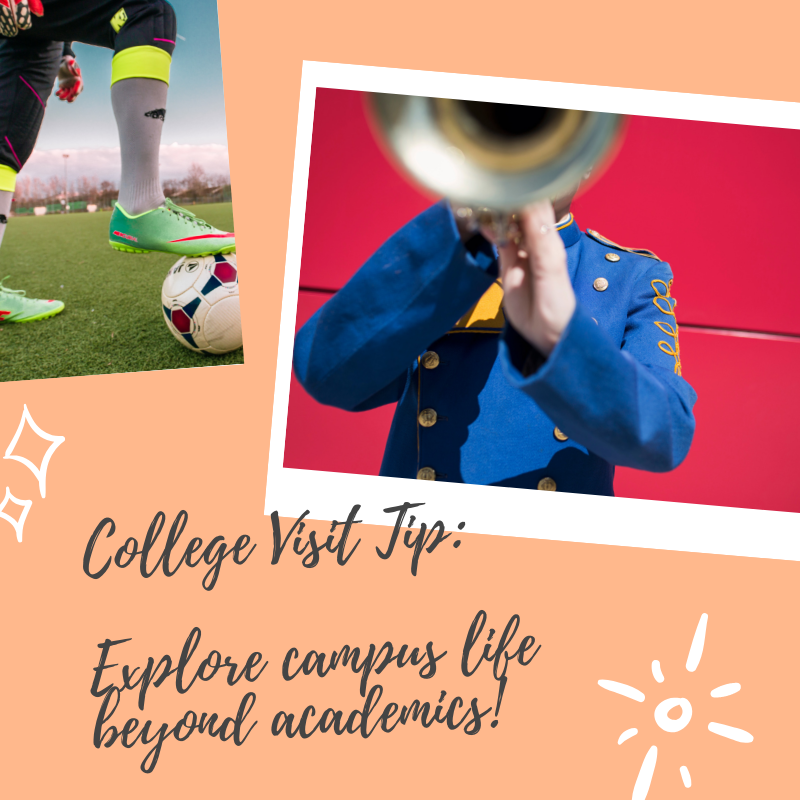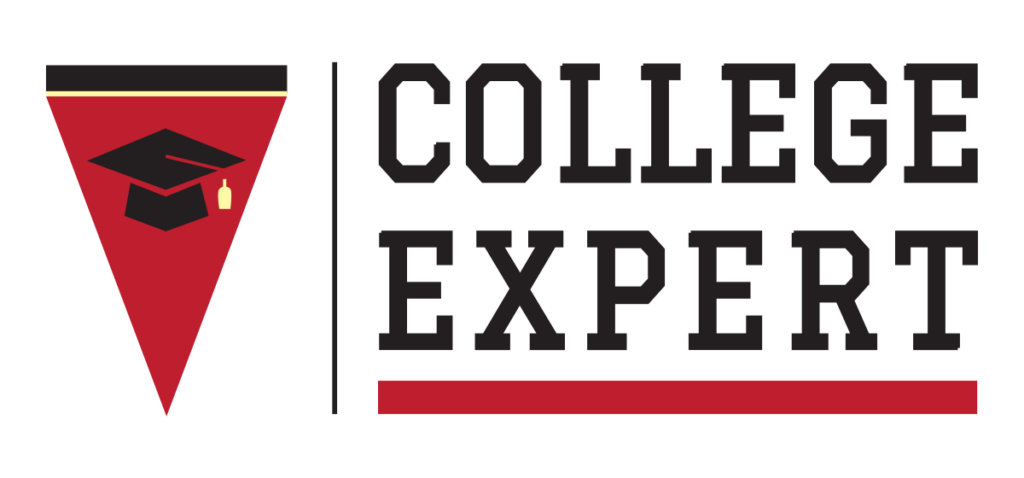
For those students not hitting the beach this spring break, college visits might be on the docket. But walking around campus and checking out the library and dining hall aren’t the only things you should do to make the most of your school stopover.
A school visit requires a little planning before you go. Evaluating a college isn’t just about the campus exterior, but whether it’s a good match for your academic path and personal preferences. These are things you should consider before pulling into the parking lot.
Here are some tips from College Expert for planning your college tours and making the most of your time on campus:
1. Choose a variety of colleges
Carefully choose a variety of colleges to visit and make sure you have some “reach” colleges, schools where you are likely to be accepted, and affordable colleges that fit your budget. Visit a large public university, a small private college, an urban campus, and a college in a small town to get a sense of what feels right to you.
2. Schedule your visit at least a month in advance
Most colleges offer morning and afternoon information sessions and tours year-round, Monday through Friday. They may have special visit days, and sometimes they offer visits on Saturday mornings. Sign up at least one month before you go, and be sure to spend at least a half day at each college. You can visit two colleges a day if you plan it right.
3. Learn about the college beforehand
Read material from the colleges you are visiting and check out their websites. Look for things that interest you that you may want to learn more about during your visit. Doing some research ahead of time may also prevent you from asking an embarrassing question, such whether they have an engineering program when it says they do on their website.
4. Explore the college community
When you are visiting an out-of-town college, stay at a hotel close to the college you plan to visit. Check out local restaurants, shops, and recreational options near campus. As a student, you will spend most of your time on campus, but the surrounding community may still play a part in the overall fit. Drive by the admissions office ahead of time so you know where it is and where parking is available. Make sure you have the GPS address for the information session/tour, not just the general campus address. It is usually, but not always, held at the admissions office.

5. Participate in the information session
Information sessions are usually led by an admissions counselor who will give an overview of academics, campus life and admissions. Ask questions that help you clarify the academic programs that interest you and the type of student who is most comfortable and successful there. Pay close attention to the admission requirements and deadlines.
6. Take the student-led campus tour
Take advantage of the opportunity to learn about campus life on the student-led tour. A student can provide insight about the social scene, school spirit and the overall fit. Find out if students stick around on weekends. If you visit a dorm, picture yourself living there. Pay attention to the library and other study areas where you would spend a lot of time. Most importantly, can you relate to the students who go there?
7. Explore campus life beyond academics
If you are an athlete, checkout the athletic facilities. If you are a performing arts student, check out the theater and concert halls. Look for clues about what campus life is like. Every tour will take you to the student center where students eat and hang out. But investigate further. Read notices posted in the dorms or on bulletin boards. Pick up the student newspaper and read the articles. Can you see yourself there?
8. Eat lunch in the student center; watch student interactions
Observe the students. Are they sitting by themselves with their headphones on or are they laughing and talking with each other? Do you feel comfortable among them? What do you think of the dining options? Feel free to strike up a conversation with a student. Let them know you are touring and ask for their impression of the college.
9. Arrange for campus meetings in your areas of interest
Learn as much as you can while you are on campus. For example, the admissions office may be able to help you set up a meeting with a coach, or if you are a musician, with the music department. Occasionally they will also let you sit in on a class. If you know a classmate attending that college, try and find a time to meet and get their impressions as well.

10. Write down your impressions; send a thank
If you don’t stop to record your thoughts, different schools may begin to blur together. Keep a list of pros and cons for comparison. (Consider taking photos to help you keep track of the campuses you visit.) Evaluate the campus environment and note your impressions. Is it too big or too small for you? How would you get around campus – particularly in the rain or snow? Is it easy to get home? If you apply to that college, you may need to write an essay about why you would like to attend. If necessary, you can revisit your notes for details you may have forgotten.
After you’ve completed your spring break visits, don’t forget to send a thank-you email to your assigned admissions counselor letting him or her know you visited the campus. Refer to your notes, and reinforce what you loved about the school.
Finally, since it is spring break, make your college visits as memorable and enjoyable as any vacation. Be a tourist, go to interesting restaurants, take in athletic events or theater productions, see the local sights and enjoy spending time with your family.
Browse College Expert Blogs for more information about college visits and college planning.
